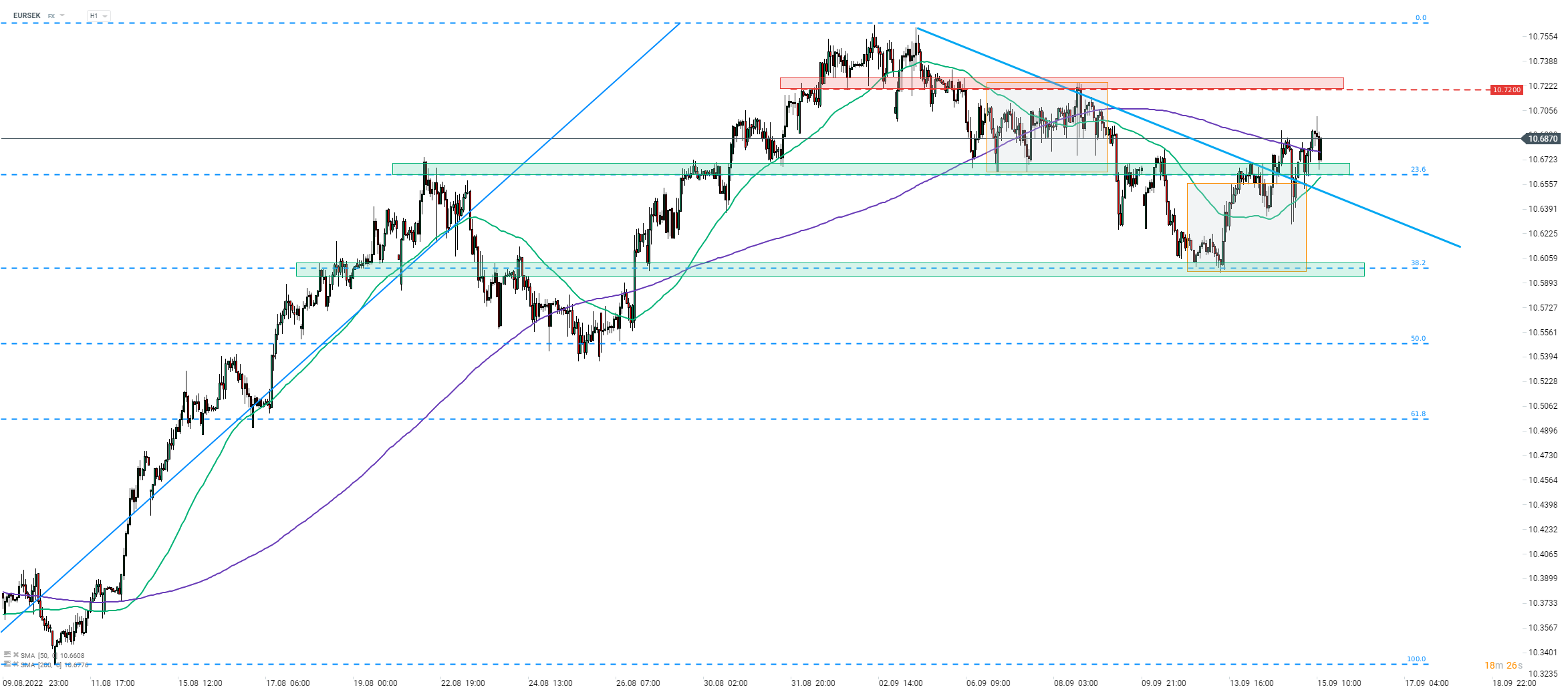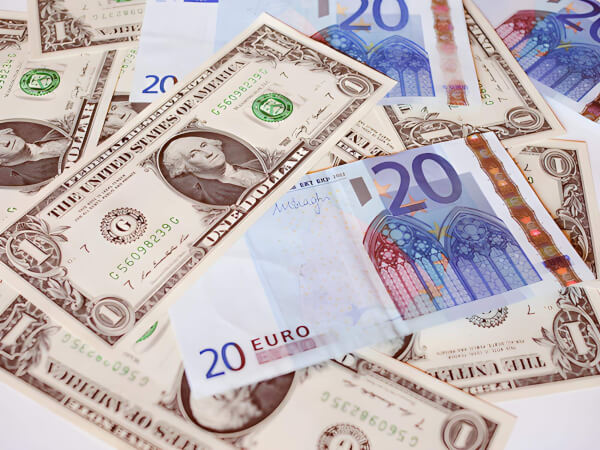-
Right-wing parties set to win majority in Swedish elections
-
Sweden's PM Andersson announced resignation
-
Economic policies unlikely to change
-
Upcoming Riksbank meeting more important for SEK
Almost all votes cast in Swedish parliamentary elections were counted and results seem to confirm that the coalition of right-wing parties (Sweden Democrats, Liberals, Moderates and Christian Democrats) secured a majority of seats in the parliament. This means a shift in power in Sweden with the previously ruling center-left bloc going into opposition. While official results were not announced yet, Swedish Prime Minister Magdalena Andersson (Social Democrats) admitted defeat today and announced that she will resign from the post.
 Source: Deutsche Welle
Source: Deutsche Welle
What does change in power mean for SEK and the economy?
Sweden Democrats are set to win the largest number of seats among the right-wing parties and will likely play a leading role in the new governing coalition. The party is considered to be eurosceptic and has made its way into the mainstream by advocating for a tough anti-immigration policy. Changes to immigration laws look likely and so do changes to law aimed at addressing increasing gun violence in Sweden. However, when it comes to economics, the party is centrist and pragmatic without leaning clearly towards right- or left-wing policies. This means that any major shift in economic policies in Sweden should not be expected. Neither approach to foreign affairs or defense is likely to change. In fact, new anti-immigration government may be more eager to address Turkey's concerns over Sweden joining NATO as Turkey accused Sweden of providing shelter for Kurdish immigrants which it sees as terrorists.
However, a point to note is that the new right-wing coalition is likely to have only 1 or 2 seats more than required to establish a majority in the 349-seat Swedish parliament. This means that a shift in power in-between elections remains a possibility.
Attention shifts to Riksbank meeting (September 20, 2022)
While elections most likely resulted in a shift in power, SEK was rather unfazed by the outcome. After all, economic policies are unlikely to take any sharp turn. A much more important driver for SEK is Riksbank's monetary policy. Riksbank will announce its next policy decision on Tuesday, September 20 at 8:30 pm BST. Market currently prices in a 41% chance of a 100 basis point rate hike and a 59% chance of a 75% rate hike. Riskbank earlier hinted at a 2% interest rate at the end of the year but a lot has changed since. Namely, ECB turned more hawkish and it looks likely that Riksbank will want to be 25-50 basis point ahead of ECB as it used to. Moreover, Riksbank Governor Ingves said that small rate hikes are no longer a feasible option. This means that Riksbank may aim for a 2.25-2.50% rate at year's end. Given that the main rate sits at 0.75% currently and there are only 2 Riksbank decisions left this year, big 75-100 bp rate hikes look likely.
A look at EURSEK
SEK has been rather unmoved by the outcome of elections. Swedish krone has also failed to catch a bid amid more and more hawkish rate expectations. A look at EURSEK at H1 interval, shows that the pair has recently broken above the upper limit of local market geometry and a downward trendline, suggesting that a short-term downtrend is now over. The pair also climbed above the 200-hour moving average and made a successful retest of it today. A near-term resistance to watch can be found ranging above 10.72 and a break above it would pave the way for a test of the early-September highs in the 10.76 area and possibly a test of the early-July highs in 10.80 area.
 Source: xStation5
Source: xStation5

Chart of the Day: USD/JPY highly volatile ahead of US CPI

Morning Wrap: Global sell-off in the technology sector (13.02.2026)

BREAKING: US jobless claims slightly higher than expected

Market Wrap: UK Stagnation, Tariffs Weigh on Giants, and Crypto Stabilizes
The content of this report has been created by XTB S.A., with its registered office in Warsaw, at Prosta 67, 00-838 Warsaw, Poland, (KRS number 0000217580) and supervised by Polish Supervision Authority ( No. DDM-M-4021-57-1/2005). This material is a marketing communication within the meaning of Art. 24 (3) of Directive 2014/65/EU of the European Parliament and of the Council of 15 May 2014 on markets in financial instruments and amending Directive 2002/92/EC and Directive 2011/61/EU (MiFID II). Marketing communication is not an investment recommendation or information recommending or suggesting an investment strategy within the meaning of Regulation (EU) No 596/2014 of the European Parliament and of the Council of 16 April 2014 on market abuse (market abuse regulation) and repealing Directive 2003/6/EC of the European Parliament and of the Council and Commission Directives 2003/124/EC, 2003/125/EC and 2004/72/EC and Commission Delegated Regulation (EU) 2016/958 of 9 March 2016 supplementing Regulation (EU) No 596/2014 of the European Parliament and of the Council with regard to regulatory technical standards for the technical arrangements for objective presentation of investment recommendations or other information recommending or suggesting an investment strategy and for disclosure of particular interests or indications of conflicts of interest or any other advice, including in the area of investment advisory, within the meaning of the Trading in Financial Instruments Act of 29 July 2005 (i.e. Journal of Laws 2019, item 875, as amended). The marketing communication is prepared with the highest diligence, objectivity, presents the facts known to the author on the date of preparation and is devoid of any evaluation elements. The marketing communication is prepared without considering the client’s needs, his individual financial situation and does not present any investment strategy in any way. The marketing communication does not constitute an offer of sale, offering, subscription, invitation to purchase, advertisement or promotion of any financial instruments. XTB S.A. is not liable for any client’s actions or omissions, in particular for the acquisition or disposal of financial instruments, undertaken on the basis of the information contained in this marketing communication. In the event that the marketing communication contains any information about any results regarding the financial instruments indicated therein, these do not constitute any guarantee or forecast regarding the future results.


